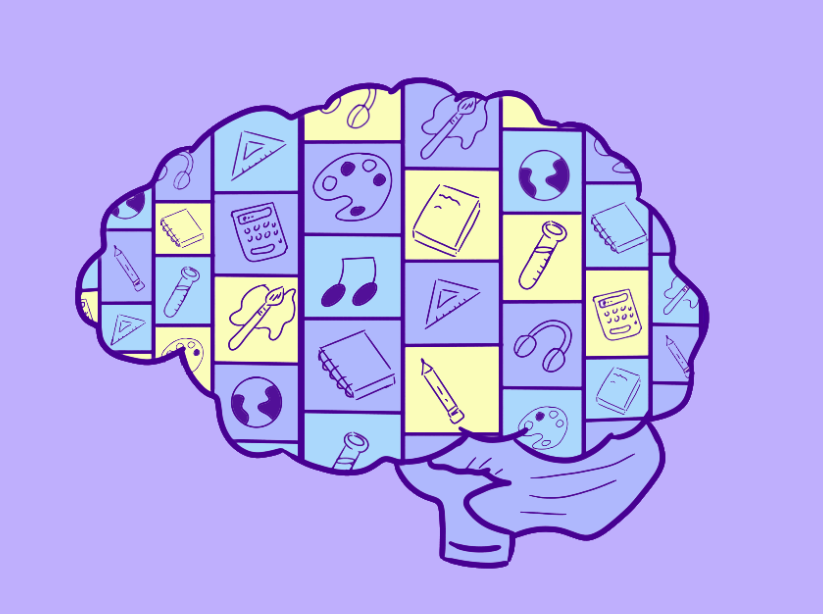Mosaic of Learning | Talking about mental illness
Mosaic of Learning is a biweekly blog that takes a look at research and education at the University.
February 18, 2022
Recently, I started binging the Netflix series “BoJack Horseman” because it felt as if the show had captured the attention of everyone around me like a forest fire. While initially watching, I assumed the show would resemble the characteristics of other adult animated shows like “Big Mouth” — a light-hearted comedy with dark humor sprinkled around. In reality, my estimated ratio of light-hearted comedy to dark humor was immensely skewed.
The show follows a washed-up, former sitcom actor who is attempting to regain his fame through acting and releasing his memoir by ghostwriter Diane Nguyen. While the show initially starts out as a surface-level comedy, it immediately strikes its viewers with its accurate depiction of mental illness. The show touches on topics including, but not limited to, addiction, anxiety, depression, destructive behavior, grief and trauma.
While there have been countless shows and movies that address the same issues as “BoJack Horseman,” the show doesn’t offer solutions to living with mental illness. BoJack is never “cured” from his mental illnesses. Rather, the show follows along with a raw portrayal of combating mental illnesses through everyday living. It provides the viewer with solace to know that others experience similar battles as the viewer. Each character depicted on the show has the potential to mirror a characteristic of the viewer. The take-home message is that the viewer is not alone.
While the issues “BoJack Horseman” touches upon have always been relevant, there is a dire need for increased awareness in the world of COVID-19. Recent studies show that those who have previously tested positive for COVID-19 are at a higher risk of experiencing neuropsychiatric illnesses after one year. They also are more likely to experience anxiety, brain fog, depression and substance abuse. While COVID-19 brought about a surge in mental illness through lockdown and a sharp decline in human interaction, researchers have speculated that there could be a link between COVID-19 and mental illness.
The risk of developing brain fog increased 80% among those who contracted COVID-19. Those who were hospitalized as a result of COVID-19 were 343% more likely to develop neuropsychiatric illness, while those who were not hospitalized but still contracted COVID-19 were 40% more likely to develop an illness.
With the surge in mental illnesses, it is important to increase awareness of the subject. Popular culture, including shows like “BoJack Horseman,” address and provide outreach to those suffering from mental illnesses. In my opinion, everyone could do themselves good by taking the time to binge “BoJack.”
Khushi writes about research, education and events taking place at Pitt. Talk to her at [email protected].








